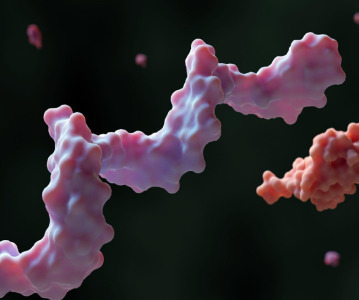Insights into a new therapy for a rare form of cystic fibrosis
Scientists have established that a drug recently approved by the U.S. Food and Drug Administration to treat a rare form of cystic fibrosis.
Scientists at the Hospital for Sick Children in Toronto have established that a drug recently approved by the U.S. Food and Drug Administration to treat a rare form of cystic fibrosis works in an unconventional way. Their results reveal new possibilities for treating various forms of cystic fibrosis.
Cystic fibrosis is an inherited disease afflicting about 70,000 people around the world. Cystic fibrosis patients carry a defective gene that disables or destroys its protein product, which normally regulates the transport of ions across cell borders. When that transport is disrupted, the viscosity of the mucus coating certain organs becomes too thick. A characteristic feature of the disease is thick mucus buildup in the air passages, which causes difficulty breathing and recurring infections.
While the FDA approved the drug VX-770 (also known by the trade names Kalydeco and Ivacaftor) to ease breathing in people with cystic fibrosis caused by a particular mutation in the CFTR protein (the acronym is short for cystic fibrosis transmembrane conductance regulator), exactly how VX-770 worked in those patients was unknown.
Scientists have understood for some time that normal CFTR regulation requires modification of the protein and binding of a small, energy-providing molecule - adenosine triphosphate, or ATP. But, in their recent Journal of Biological Chemistry "Paper of the Week," Christine Bear and colleagues report that the drug opens both normal and mutant CFTR channels without ATP. Their results indicate that the compound binds to a different site on CTFR than ATP. Significantly, this finding may be useful in developing therapies for cystic fibrosis caused by various CFTR mutations that, like the G551D mutation that was studied, impair ATP-mediated channel regulation.
Bear's group determined how VX-770 works after developing a new experimental system that may have potential for discovering drugs that target the basic defects caused by CFTR mutations, Bear says. The system is useful for identifying compounds that interact with rare mutations such as G551D as well as the major CFTR mutant F508del, she said.
Eckford PD, Li C, Ramjeesingh M, Bear CE. CFTR potentiator VX-770 (Ivacaftor) opens the defective channel gate of mutant CFTR in a phosphorylation-dependent but ATP-independent manner. J Biol Chem. 2012 Aug 31
Related News
-
News Google-backed start-up raises US$600 million to support AI drug discovery and design
London-based Isomorphic Labs, an AI-driven drug design and development start-up backed by Google’s AI research lab DeepMind, has raised US$600 million in its first external funding round by Thrive Capital. The funding will provide further power t... -
News AstraZeneca to invest US$2.5 billion in Beijing R&D centre
Amid investigations of former AstraZeneca China head Leon Wang in 2024, AstraZeneca have outlined plans to establish its sixth global strategic R&D centre in China. Their aim is to further advance life sciences in China with major research and manufact... -
News Experimental drug for managing aortic valve stenosis shows promise
The new small molecule drug ataciguat is garnering attention for its potential to manage aortic valve stenosis, which may prevent the need for surgery and significantly improve patient experience. -
News How GLP-1 agonists are reshaping drug delivery innovations
GLP-1 agonist drug products like Ozempic, Wegovy, and Mounjaro have taken the healthcare industry by storm in recent years. Originally conceived as treatment for Type 2 diabetes, the weight-loss effects of these products have taken on unprecedented int... -
News A Day in the Life of a Start-Up Founder and CEO
At CPHI we work to support Start-Up companies in the pharmaceutical industry and recognise the expertise and innovative angles they bring to the field. Through our Start-Up Programme we have gotten to know some of these leaders, and in this Day in the ... -
News Biopharmaceutical manufacturing boost part of new UK government budget
In their national budget announced by the UK Labour Party, biopharmaceutical production and manufacturing are set to receive a significant boost in capital grants through the Life Sciences Innovative Manufacturing Fund (LSIMF). -
News CPHI Podcast Series: The power of proteins in antibody drug development
In the latest episode of the CPHI Podcast Series, Lucy Chard is joined by Thomas Cornell from Abzena to discuss protein engineering for drug design and development. -
News Amgen sues Samsung biologics unit over biosimilar for bone disease
Samsung Bioepis, the biologics unit of Samsung, has been issued a lawsuit brought forth by Amgen over proposed biosimilars of Amgen’s bone drugs Prolia and Xgeva.
Position your company at the heart of the global Pharma industry with a CPHI Online membership
-
Your products and solutions visible to thousands of visitors within the largest Pharma marketplace
-
Generate high-quality, engaged leads for your business, all year round
-
Promote your business as the industry’s thought-leader by hosting your reports, brochures and videos within your profile
-
Your company’s profile boosted at all participating CPHI events
-
An easy-to-use platform with a detailed dashboard showing your leads and performance







.png)